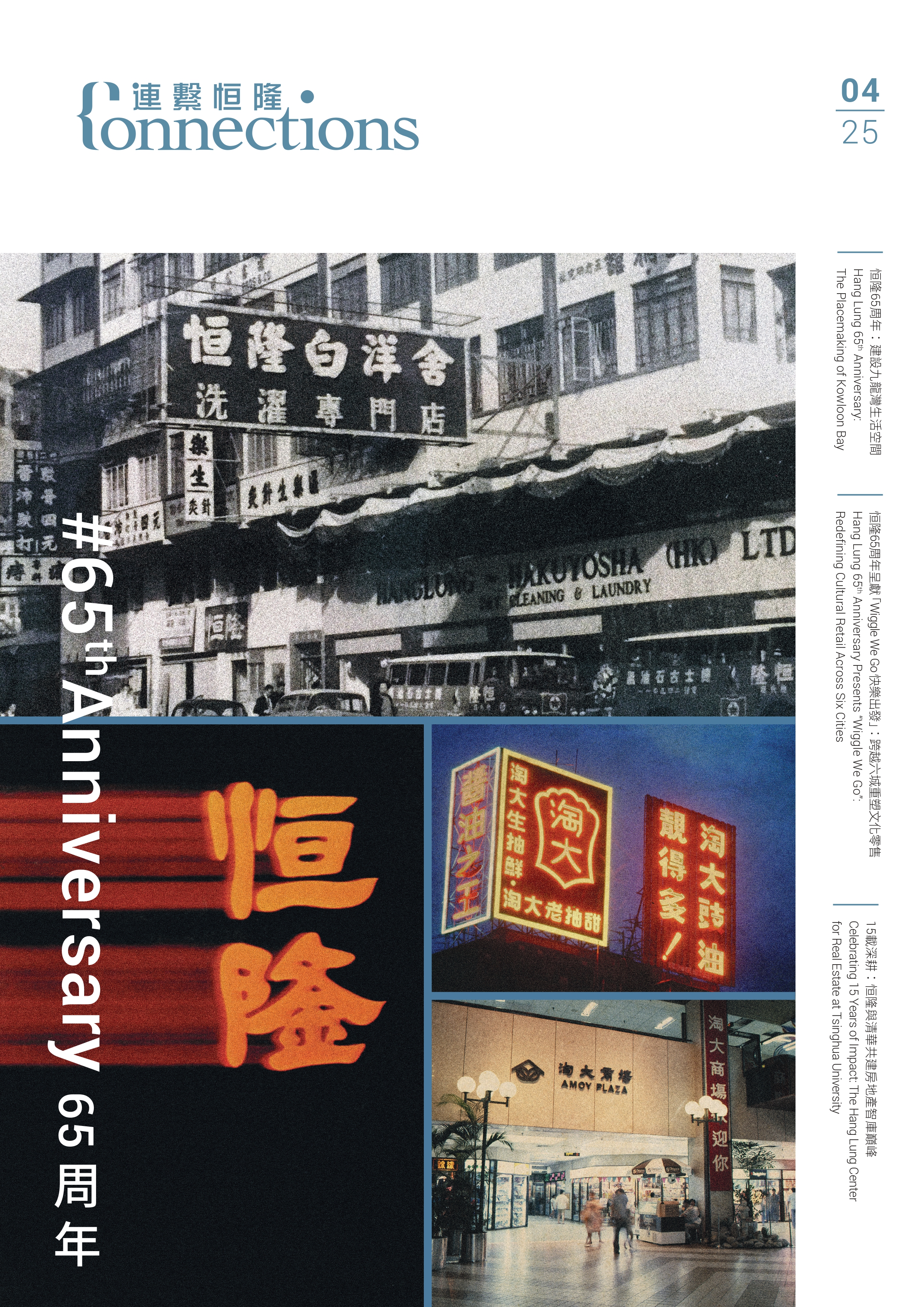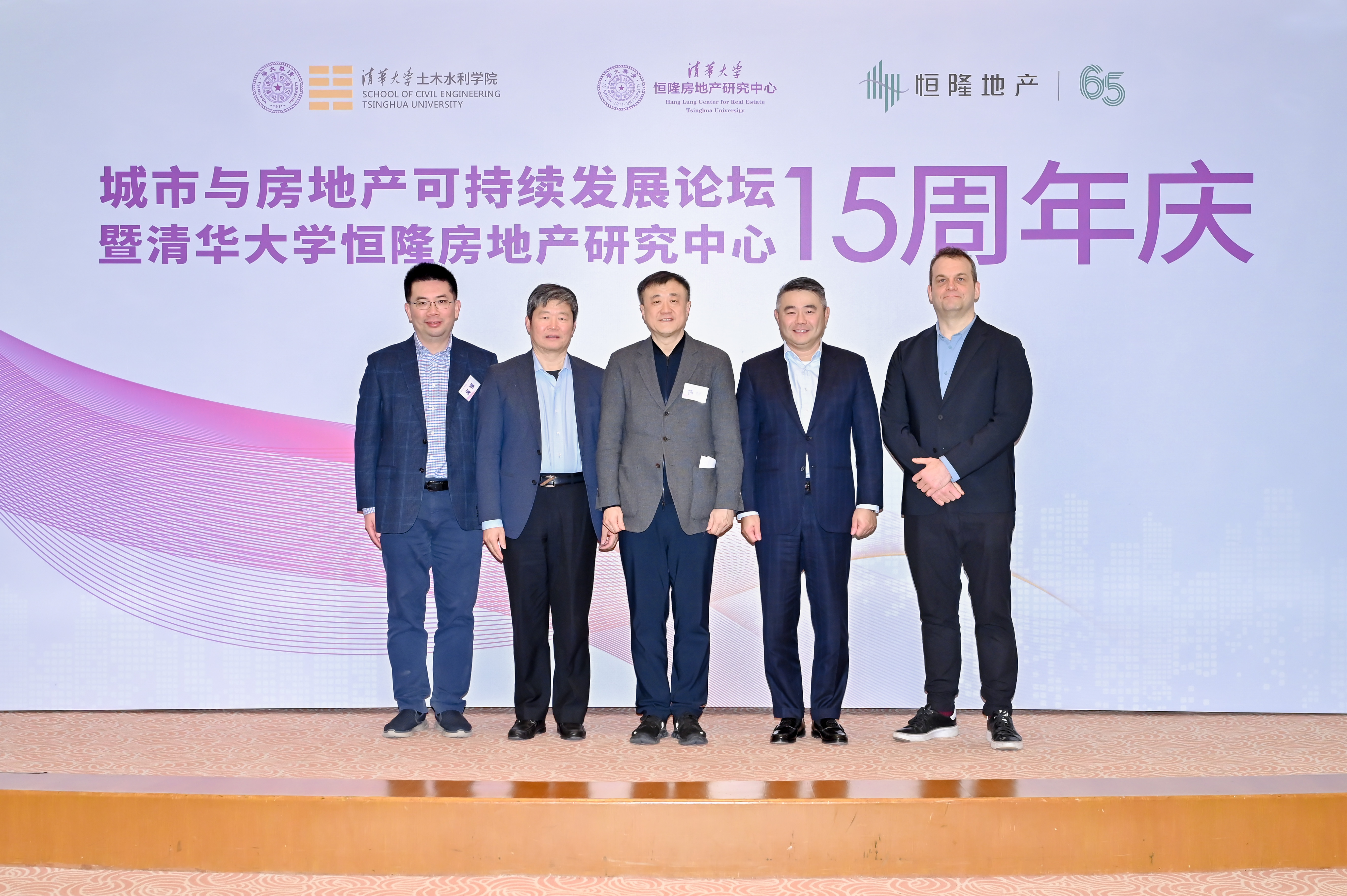(Hong Kong, June 12, 2014) With a donation from Hang Lung Properties Limited (HKSE stock code: 101), the Hang Lung Center for Real Estate, Tsinghua University in Beijing (“the Center”) was established to promote real estate research and development in mainland China. Professor Liu Hongyu, Director of the Center, visited the headquarters of Hang Lung Properties Limited in Hong Kong today (June 12) and gave a talk to Hang Lung staff. He provided an insightful analysis that demonstrated his unique understanding of the current situation in the real estate market in mainland China as well as related government control measures.
In order to broaden the horizons of staff and widen their exposure to expert opinions and expertise, Hang Lung regularly organizes lunch talks with community and business leaders as guest speakers. Mr Philip N. L. Chen, Managing Director of Hang Lung Properties Limited, thanked Professor Liu for his visit and his informative talk, which helped Hang Lung staff gain a better understanding of the policies, trends and corresponding tactics of the mainland real estate market, its current situation, and the opportunities it offers.
During the talk, Professor Liu said the key to the development of a long-term mechanism for the real estate sector is to further stabilize the housing market. “The existing government control measures provide an opportunity for the mainland housing market to self-adjust,” he said. “This is generally expected by society, including the government and most real estate developers. The government control measures will also benefit the sustainable, healthy and stable development of the real estate market.”
Professor Liu pointed out six main aspects of promoting the long-term mechanism for the stable development of the real estate sector. As well as encouraging the introduction of joint property ownership to support low- to mid-income families in owning self-occupied properties, he also mentioned improving the land supply system by deciding the amount, timing and space allocation of land supply based on the demand and supply of the real estate market and the demands of the housing market. He also said the real estate tax system could be used as a key measure to manage the demand for housing as well as to differentiate users from investors.
The long-term mechanism suggested by Professor Liu also included the He also recommended speeding up of the setting up of a policy-based housing financial institution and a regulatory system for residential properties financing in order to improve the real estate financial system. He also suggested reconfiguring the distribution of public services to satisfy the demands of residents in developing areas so as to ease the pressure on housing in urban areas. In order to regulate the real estate market by differentiated tightening measures, the central government should focus on the real estate market in tier-one cities as well as regional and systemic market risks.
Professor Liu has served as Director of the Center since 2010. He is also Associate Dean of the School of Civil Engineering of Tsinghua University. Professor Liu is committed to carrying out research into the development and management of the real estate sector on the Mainland. He is familiar with mainland housing policy and the rules and regulations regarding land administration. He frequently participates in seminars on the Mainland or overseas as guest speaker, analyzing issues concerning the real estate sector’s development and control measures.
The Center was known as the Institute of Real Estate Studies (“the Institute”) when it was established in 1992. It is a university-level research body jointly developed by different schools. It is also one of the earliest established education and research institutions concerned with the real estate sector in universities in mainland China. In 2010, Hang Lung donated HK$30 million to establish the Center in order to support real estate academic research and development as well as to train future industry leaders. From 1992 onwards, the Institute and the Center have nurtured nearly 300 undergraduates, master’s and doctoral graduates. Over 1,000 senior management members from the real estate sector have also been trained. The Center has provided research support to related government departments in formulating policies benefitting the sustainable and healthy development of the real estate market.





.png)











